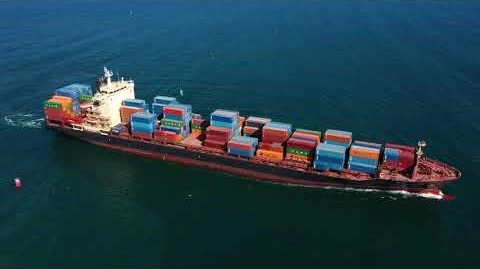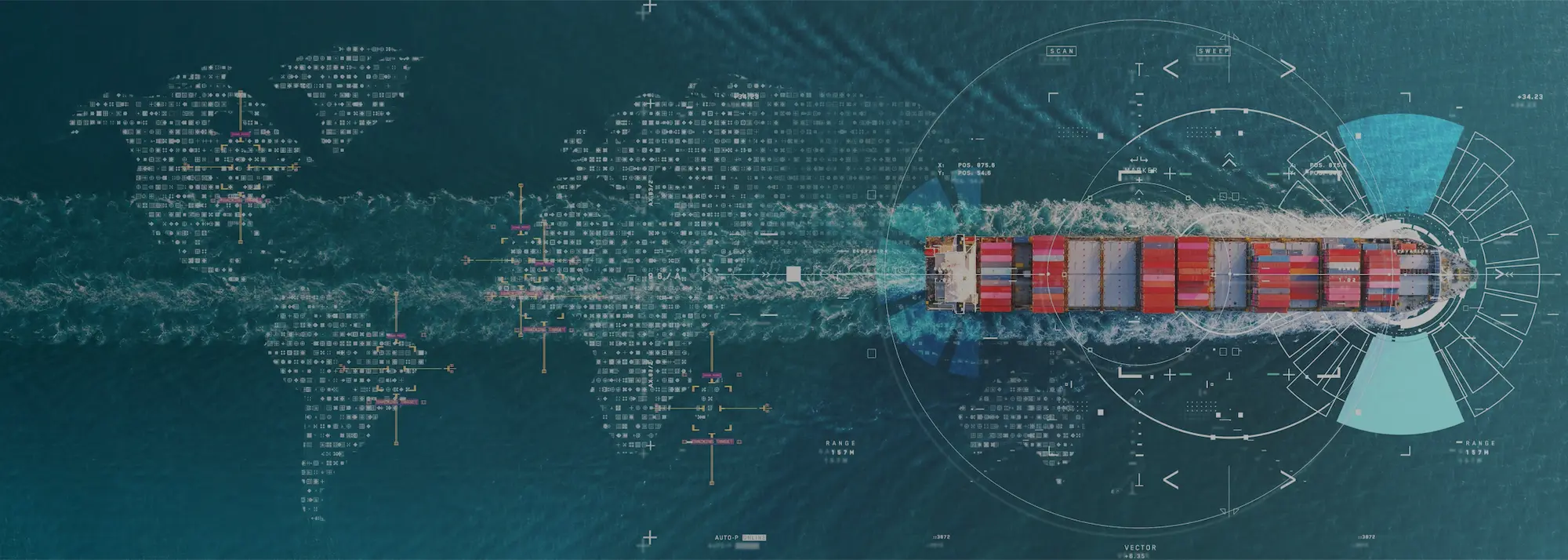Global trade surpassed a record S$40 trillion (US$32 trillion) in 20221. In the same year, Singapore, one of the world’s largest trading hubs, saw more than 130,000 vessels2 and S$1.3 billion in total merchandise trade value3 flow through its ports.
Despite the size and scope of global trade, international trade transactions are still done through paper-based documentation between numerous stakeholders within the global supply chain ecosystem. An example of a trade document that is predominantly exchanged in paper-based format is the bill of lading, a legal document used in maritime trade to confer title or ownership of goods in transit. The bill of lading requires multiple parties – banks, carriers, importers, and exporters – to print, stamp, and sign various paper copies before physically transporting them across several countries to its end destination by air express. This non-digital process is inefficient, costly, time-consuming, and highly susceptible to fraud.
Revolutionising global trade through TradeTrust
Singapore saw an opportunity to transform the way the world trades by digitalising cross-border trade documents. Capitalising on its strong trade networks and working together with various agencies and industry partners, IMDA developed and pioneered TradeTrust, a transformational solution to enable faster and more secure digital trade transactions across the global supply chain.

TradeTrust resolves the inefficiencies of paper-based cross-border trade and reduces costs of documentation through the end-to-end digitalisation of documents, it also lowers the risks of fraud through the use of digital ledger technology, which verifies the authenticity and source of the trade document as well as effects title ownership.
Mr Loh Sin Yong
IMDA’s Director of TradeTrust
How TradeTrust works
IMDA’s TradeTrust is a digital utility anchored by internationally accepted standards and is designed to simplify and optimise the trusted exchange of digital trade documents. It facilitates the convergence of physical, financial, and document chains to automate key trade processes and transform existing paper-based processes into digital ones. TradeTrust enables governments and businesses to issue, verify the authenticity and provenance of documents, and effect title transfer across different digital platforms. Additionally, TradeTrust allows documents to be generated with a QR code, which can then be printed and shared with other parties. When scanned, this QR code allows them to retrieve and verify the digital file. This easy 'swopping' between paper and digital formats eliminates the need for all parties along a lengthy supply chain to be of the same technological maturity, which enables widespread scalability.
By using blockchain-powered technology, TradeTrust turns trade documents, like electronic Bills of Lading (eBLs), into verifiable and tamper-proof digital records knowns as Electronic Transferable Records (ETRs). This eliminates the need for a central authority to oversee transactions, ensuring neutrality and impartiality for all transacting parties. TradeTrust currently connects to Ethereum, Polygon, and XDC blockchain networks and uses non-fungible tokens for secure ETR ownership transfers. eBLs generated through TradeTrust meet the stringent standards outlined in the United Nations Commission on International Trade Law (UNCITRAL) Model Law of Electronic Transferable Records (MLETR), ensuring singularity, exclusive control, and integrity. Singapore is among the world’s first jurisdictions to adopt the MLETR into its statutory law, legally recognising eBLs as functionally equivalent to their physical versions.


A strong framework for the legal recognition of electronic documents is fundamental to the sustained growth of global digital trade. TradeTrust builds on this by supporting the notarisation of trade documents using open-source solutions. As Sin Yong explains, “TradeTrust’s open-source code is freely available and can be easily integrated into any existing system of businesses and service providers to create and verify documents in support of viable use cases.”
The world’s first paperless cross-border trade ETR supported through TradeTrust
On 30 March 2023, the world saw its first paperless, live ETR when IMDA, together with our partners, optimised TradeTrust’s framework to create an eBL compliant with UNCITRAL’s MLETR requirements. The partners included ExxonMobil Asia Pacific as the shipper, Bunkerchain as the TradeTrust-enabled digital platform provider, and VLK as the vessel owner.
This TradeTrust pilot demonstrated the advantages of using ETRs for smoother cross-border digital trade between shipping lines, logistics providers, financial institutions, and overseas government authorities. By providing proof of authenticity, origin, and ownership of electronic transferable documents, TradeTrust provided stakeholders across the supply chain with the opportunity to mitigate the risk of fraud and reduce costs, while improving trust and efficiency through the automation of key processes.

Hear from Sin Yong and industry partners about the role TradeTrust plays in cross-border trades.
Following this pilot, TradeTrust established digital trade corridors between Singapore and several other nations in 2023. The first live eBL for shipments between Singapore and India was transacted on 25 August. On 19 October, the first live digital trade between China and Singapore was completed using IMDA’s TradeTrust and Beijing’s AEOTradeChain blockchain technology. Notably, the digital trade transactions in both countries marked the first decentralised transaction of an eBL across different systems.
Companies along the supply chain can play a part in transforming global trade
TradeTrust is designed to help companies across the supply chain ecosystem increase efficiency, as well as lower operating costs and risks of fraud. Its source code can be easily integrated into the existing system of businesses and solution providers. Companies who are interested in co-creating new service offerings in support of viable use case may seamlessly integrate TradeTrust’s source code into their system.
Find out more about TradeTrust and how businesses can participate in the reduction of inefficiencies and complexities of cross-border trade.
Footnotes
1 UNCTAD, December 2022, Global trade set to hit record $32 trillion in 2022, but outlook increasingly gloomy for 2023
2 Singapore Economic Development Board, Global Connectivity
3 Department of Statistics Singapore, March 2023, Singapore’s International Trade



.webp)